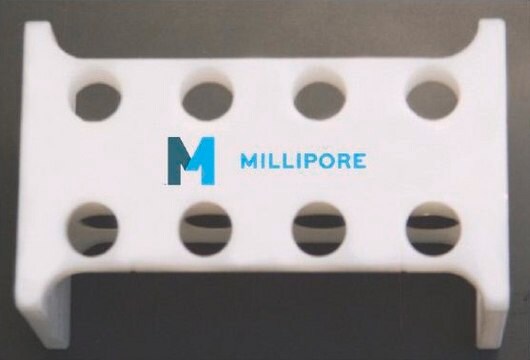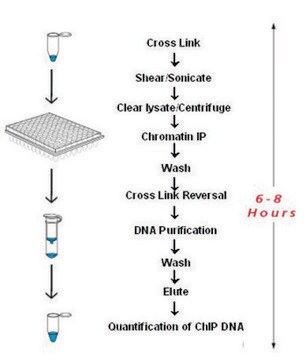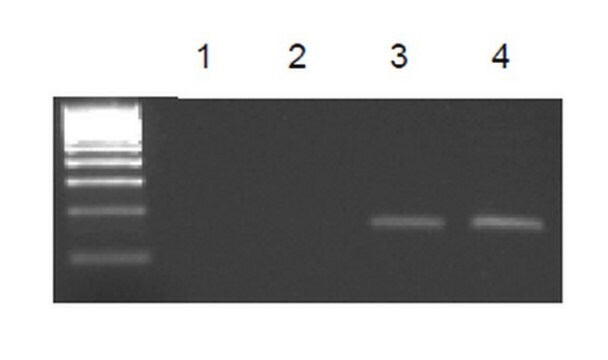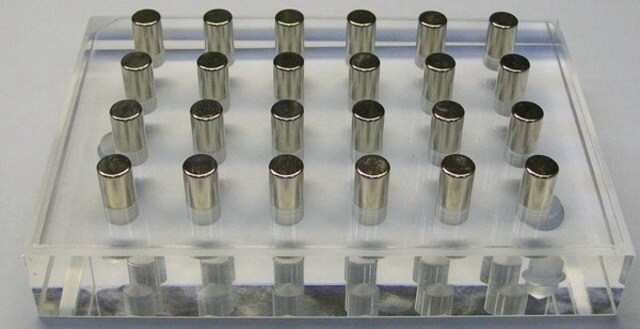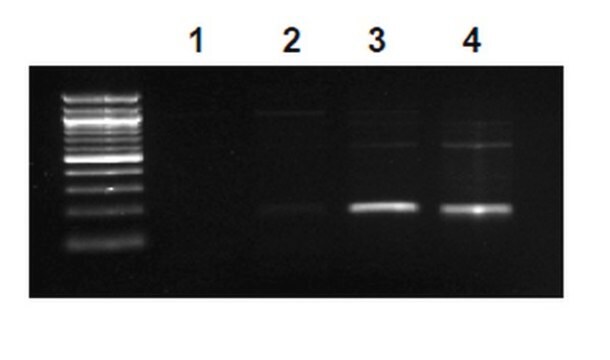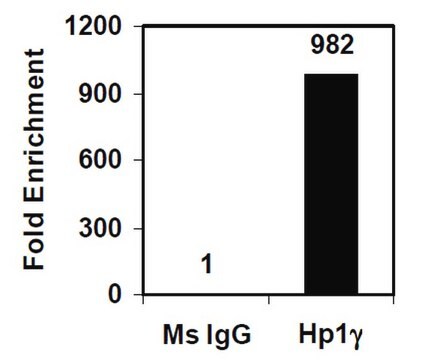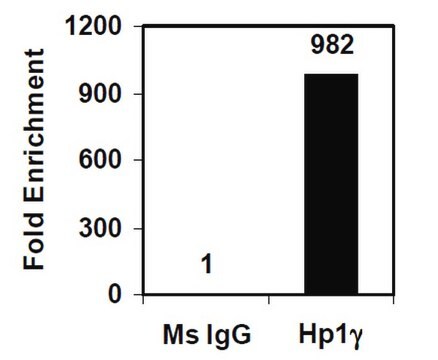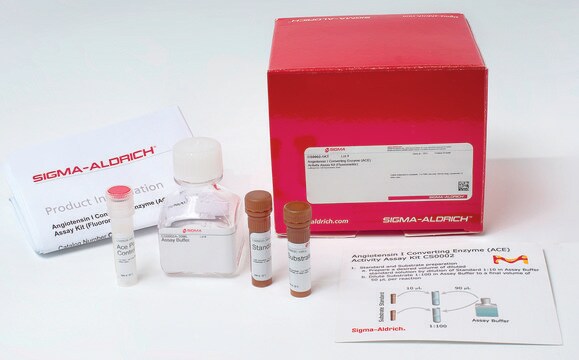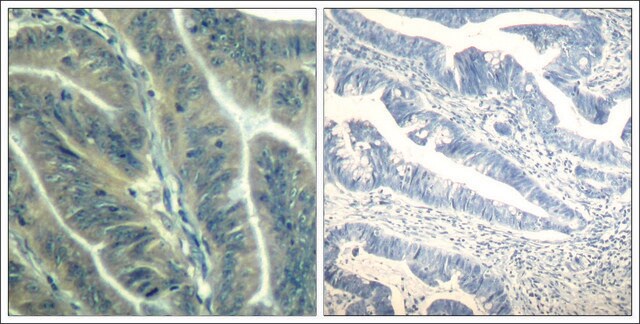17-10077
Magna ChIP® HT96 Chromatin Immunoprecipitation Kit
The Magna ChIP HT96 kit allows the performance of chromatin Immunoprecipitation in a 96-well plate-based format.
About This Item
Recommended Products
Quality Level
manufacturer/tradename
Magna ChIP®
technique(s)
immunoprecipitation (IP): suitable
shipped in
dry ice
General description
Features & Benefits
- Complete set of materials for up to 96 ChIP reactions
- Protein A+G bead blend for ChIP with a broader range of antibodies than A or G alone
- Low Chromatin requirements: 10, 000 to 100, 000 cells per reaction
- Optimized streamlined protocol with only a single buffer for sonication, IP, or wash; and protocols for automated liquid handling systems
- Protocols for using cells or tissues
- Direct analysis of DNA without additional clean-up steps
- Compatible with ChIPAb+ validated antibody and primer sets
Application
Epigenetics & Nuclear Function
Packaging
Components
HT96 Nuclei Isolation Buffer
HT96 ChIP Buffer (Sonication/ChIP/Wash)
Low Stringency IP Wash Buffer
HT96 ChIP Elution Buffer
Proteinase K Solution
Protease Inhibitor Cocktail III
10X Glycine
10X PBS
96 Well ChIP Plate
96 Well Thermal Plate
Plate Seal
Strip Caps
Physical form
Storage and Stability
Legal Information
Disclaimer
Signal Word
Warning
Hazard Statements
Precautionary Statements
Hazard Classifications
Aquatic Chronic 3 - Eye Irrit. 2 - Skin Irrit. 2
Storage Class Code
10-13 - German Storage Class 10 to 13
WGK
WGK 3
Certificates of Analysis (COA)
Search for Certificates of Analysis (COA) by entering the products Lot/Batch Number. Lot and Batch Numbers can be found on a product’s label following the words ‘Lot’ or ‘Batch’.
Already Own This Product?
Find documentation for the products that you have recently purchased in the Document Library.
Protocols
Chromatin Immunoprecipitation qPCR for studying gene regulation across conditions.
Chromatin Immunoprecipitation qPCR for studying gene regulation across conditions.
Chromatin Immunoprecipitation qPCR for studying gene regulation across conditions.
Chromatin Immunoprecipitation qPCR for studying gene regulation across conditions.
Our team of scientists has experience in all areas of research including Life Science, Material Science, Chemical Synthesis, Chromatography, Analytical and many others.
Contact Technical Service